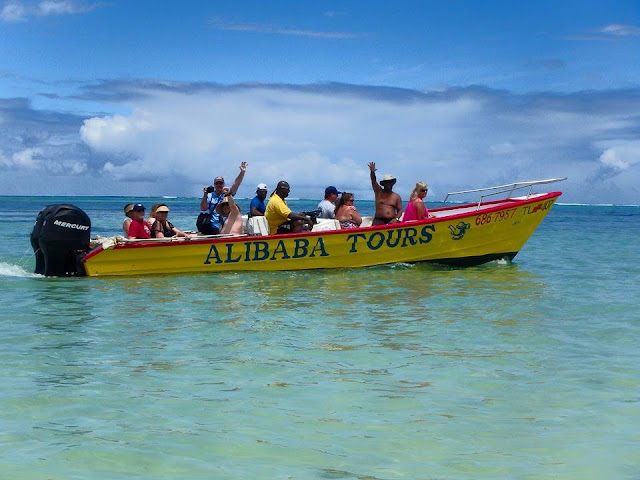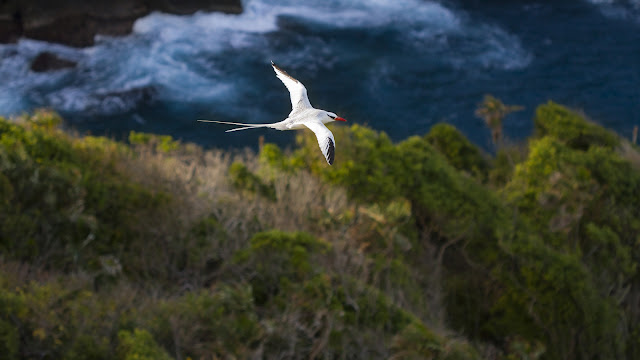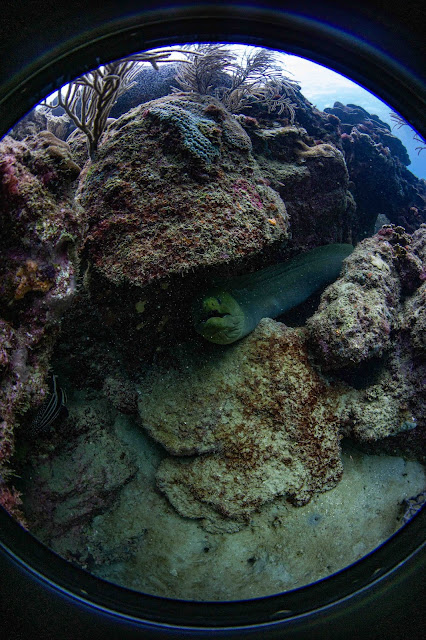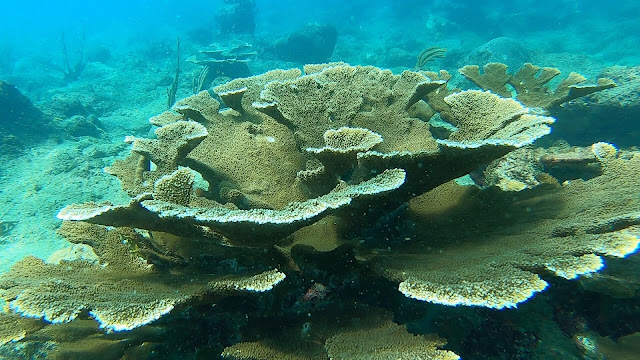The Village that sells itself
Tobago’s tourism industry
has been in the doldrums, but one west coast village is bucking the trend with
a lively trade in visitors. What is it doing right? This report by Pat Ganase first appeared in
the Contact magazine (September 2018) and is reproduced courtesy the Trinidad and Tobago Chamber of Industry and Commerce.
Castara sells
itself as the “real deal” in Tobago: an authentic Caribbean fishing village.
But its property owners claim they don’t attend trade shows; they don’t
advertise. How is it doing such good business? Is word of mouth so powerful? Is
there some other way to reach a global market?
If you search
booking.com for accommodation in Castara Tobago, you’ll find 15 to 17 properties.
SeaScape on Heavenly Bay, The Naturalist Beach Resort, Cottage Mango and
Castara Retreats have recent rave reviews. On TripAdvisor, the top-rated
accommodations in Castara are Castara Retreats, AliBaba’s Sea Breeze Apartments
and Carpe Diem Villa with “seaviews from the bed.” Carpe Diem boasts high
ceilings and a 45-foot verandah, along with “great snorkeling, diving,
swimming, bird-watching, fishing, stargazing or walking in the rain forest; a
million miles away from the hectic pace of normal life!”
There’s a
similar story on Air BnB. You see popular properties “just booked:” Blue Mango
Cottages, Golden Apple Villa, and Little House on the Hill. For the family,
there’s the house at Toad Heights, home away from home for six guests in three
bedrooms, five minutes walk to the beach.
All have
seaviews and wifi. The top three reasons to visit are said to be “sunsets,
scenery and relaxation.”
 |
| Visitors to Castara explore reef and rainforest with operators like Alibaba Tours. Photo courtesy Bertil Taylor |
THE CASTARA
STRATEGY
Word of
Castara’s continuing ability to attract visitors, and its 60 percent repeat
business rate, is getting out. Never mind the transport challenges, the decline
in the Trinidad and Tobago economy, or even the remoteness, clinging to the rainforest
on the sunset-facing coast of Tobago, Castara is succeeding with its simple
strategy for tourism, and is attracting visitors from all over Europe, the
United States and Canada, not to mention Russia, Chile and Brazil.
Over the past
four years, the Castara Tourism Development Association (CTDA) has brought
together businesses operating in Castara. It holds the view that all business
in Castara is tourism-related. So whether you sell fruits or fish, rent cars or
rooms, make meals or bread, take tours to the rainforest or reef, teach in the
school or collect bamboo for Bonfire night, you hold a stake in the future of Castara.
Bertil “AliBaba”
Taylor, owner and operator of AliBaba’s Sea Breeze and Tours, and president of
the CTDA, says, “We make sure visitors get more than expected, from arrival to
departure. Castara is a real village. Safety is a big thing in our village;
visitors must feel safe. They are invited to take part in local traditions; see
a genuine way of life. They feel welcome in every part of the village. There
are visitors who are coming back for more than 20 years; they book the next
year when they are leaving this year. By word of mouth, they bring or send
friends.
“We have never
been to a trade show. AliBaba’s Sea Breeze is listed on myTobago, Air BnB, Bookings.com and TripAdvisor; and of course, our
website and Facebook page. We have a community that sells itself person to
person. The model baffles the authorities; we are getting more arrivals than
anywhere else in Tobago. Castara people are very close, keeping culture and
tradition alive. We all benefit from tourism, there’s no need for
all-inclusives.”
 |
| The rainforest rises from the shore and covers the hills above Castara. Photo courtesy Castara Retreats |
THE
VILLAGE OF "SHARED OPPORTUNITY"
Bertil completed
AliBaba’s Sea Breeze – six rooms – in 2003. There were only a few guesthouses
then. “But in 2018,” he says, “we have 150 rooms in 30+ properties; seven
restaurants and a few bars.
“We have regular
weekly activity that attracts people from all over the island, locals and
visitors. On Wednesday, local African drumming; moko jumbies. Thursday, Bonfire
on the beach; live pan music. Saturday night, De Coffee Shop Barbecue.”
Bertil and five
brothers followed their father into the business of providing tours,
transportation, and rooms. Today, his parents operate the second traditional clay
oven in Castara, behind Cascreole restaurant which is run by another Taylor. The
two ovens operate on a co-operative system with the village bakers, producing
specialty bread (pumpkin, pawpaw and whole wheat) and pastries (coconut tarts,
drops, pone).
 | |
| Bertil “AliBaba” Taylor heads the Castara Tourism Development Association. Photo courtesy Bertil Taylor |
“The purpose of
CTDA,” Bertil says, “was to share new ideas and to act cohesively. We promote
keeping the village clean; with proper bins for recycling. We talk to the kids
about protecting the environment. We recently launched a project to ban styrofoam
and plastic bags. The kids were encouraged to design, and we make cotton re-usable
bags for distribution throughout the village.” They are already looking at
options for alternative energy, wind and solar.
“Our reef is
right off the beach; you can snorkel there. As tour operators, we educate
visitors that you cannot walk on the corals; you cannot take anything from the
reef. Villagers and visitors are regularly informed.”
Steve Felgate of Castara Retreats, concurs,
“We believe that tourism must be founded on principles of shared opportunity to
ensure that it sustains the local economy and culture without damage to the
environment.”
A founding
member of the CTDA, Steve is looking at niche markets. In
2017, Castara Retreats built a yoga platform with an incomparable view. Next,
they are looking at the
market for weddings: “We already have a steady stream of small weddings of
eight to 20 persons. We can sleep 42 guests; and have a pavilion that can
seat up to 90 at Castara Retreats.”
 |
| Castara style accommodation features wooden verandahs open to seaviews and sunsets. Photo courtesy Castara Retreats |
THE CASTARA MODEL
Castara’s secret seems to be a careful
mix of technology with human warmth and community.
The avenue for communicating with a global
market has been consistent. Steve says, “Our best strategy is a well-presented
and informative website. We pay attention to feedback and reviews on the main
internet sites. The internet is fundamental to our success. We do very
little marketing in print. We took a lot of care to create a website that
reflects a place where visitors receive a warm welcome and find others with a
similar outlook on life.”
Tobago is actively supported by a network
of people who love Tobago, many of whom may not even live here. The Castara
model need not be confined to Castara.
The myTobago
website, for example, launched in 2002, was built and is maintained by
Steve and Jill Wooler who regularly return from England to Tobago.
Wooler claims,“It
is the only comprehensive and honest guide to holiday accommodation on the
island. We include every hotel, resort, guesthouors, inn, apartment, cottage, bed and breakfast or villa
that we can trace. Most of
our research is conducted during an annual two-month winter pilgrimage to Tobago.
It's a hard life!”
This article and others in the Trinidad and Tobago Chamber of
Industry and Commerce’s Contact magazine Vol. 1 No. 2 (September 2018),
produced by MEP Publishers Ltd, may be viewed at www.chamber.org.tt/media/the-contact-business-magazine."


